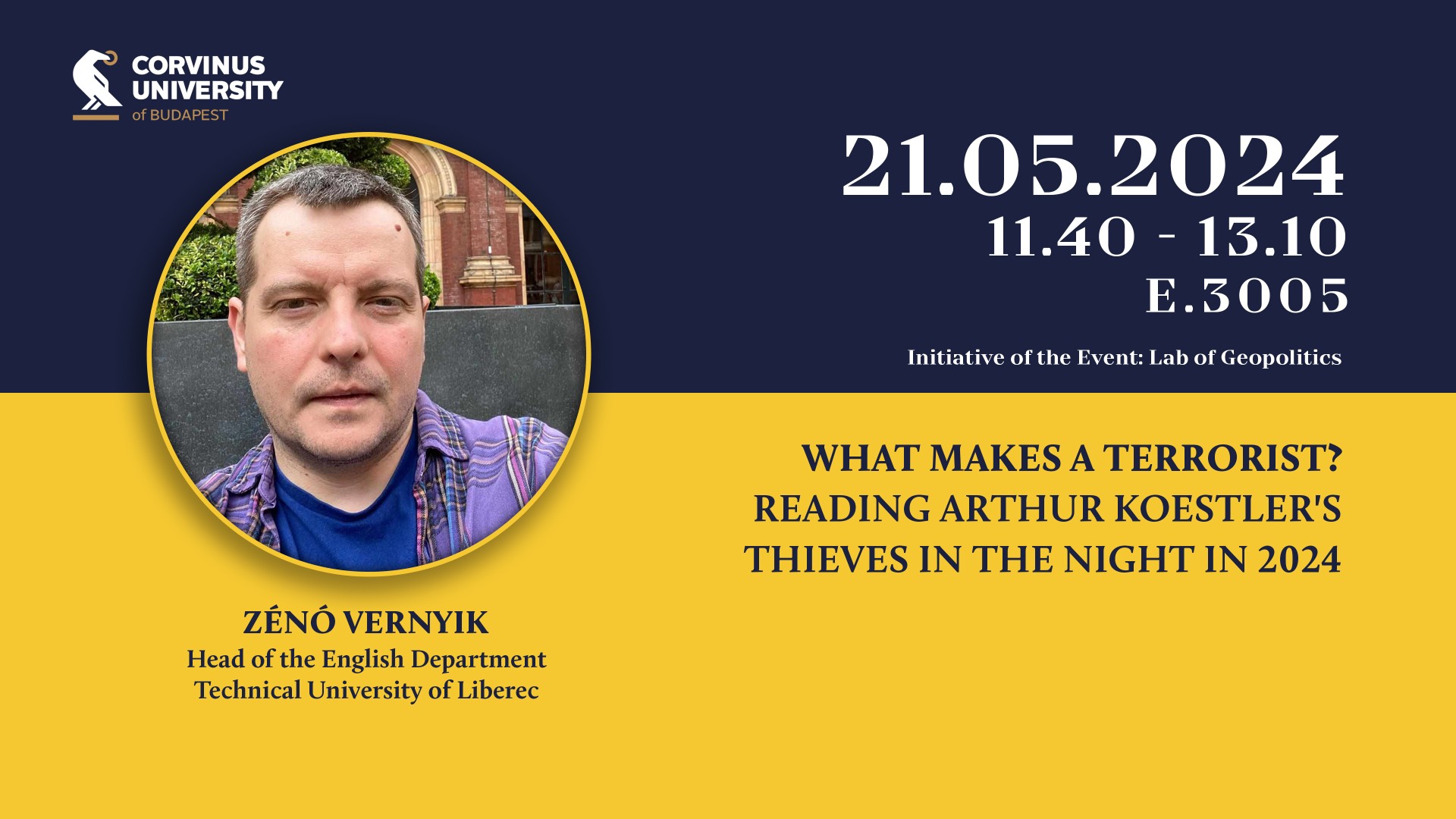What Makes a Terrorist? Reading Arthur Koestler’s Thieves in the Night in 2024
The Lab of Geopolitics invites interested students, colleagues and externals to its latest event.
Date: 21 May 2024 11:40-13:10
Venue: Corvinus Main Building E3005
“Terrorists speak the language of the unspeakable. They perform and stage the unimaginable” since “terror […] fuses the divine and the demonic in a single unspeakable and unimaginable compound” (Mitchell 2005, 298). Talking about terrorism is thus, at the very least a challenging endeavor, but possibly even an oxymoron. Not so much because it is impossible to understand the phenomenon, its context and motivation, but because one is not supposed to: “Any effort to understand, explain, or investigate the cause of the attacks [is] perceived as an attempt at justification. Providing a reason for the attacks transform[s] them into the acts of rational people, and it [is] preferable to view the perpetrators as madmen operating in an irrational world” (Martin 2007).
Yet, it is equally the duty of political scientists, historians, sociologists and literary scholars, to mention but a few disciplines with overlapping motivations, to try to understand the “poliical animal” (Aristotle) or “social animal” (Aronson) populating what Gábor Török, possibly borrowing Arkady and Boris Strugatsky’s title, calls the “inhabited island”. If we are to understand what the animal does on its island, we have to observe, analyze and discuss its behavior in its entirety, including its scary, abject or seemingly uncivilized aspects. It is with this in mind that I propose to discuss the controversial topic of terrorism, in the equally if not more controversial, and multiply contested territory of Palestine, as portrayed Arthur Koestler’s 1946 novel, Thieves in the Night, documenting its protagonist’s, Joseph’s, slow but steady conversion from a peaceful left-leaning liberal to a terrorist during the years 1937–1939. Doing so is not only interesting because it provides a pitch perfect illustration of John Horgan’s (2005) and Alan B. Krueger’s (2007) theories of terrorism, but also because, as I hope to show, this almost 80-year-old novel, its clear Zionist political agenda notwithstanding, is nevertheless: 1) revelatory in its portrayal of the terrorist in general, as well as their reasoning and motivations; 2) it gains new relevance in the light of the events following October 7, 2023, as it sheds light on the motivations of present day terrorists.
Zénó Vernyik is assistant professor and head of the English Department at the Technical University of Liberec, and a founding member of the university’s Borders and Migration Research Group. He is co-editor of the volume Brutal Aspects of Migratory Aesthetics: Migration and Violence in Modern and Contemporary Culture, published later this year by ibidem Verlag, and is currently working on the monograph Arthur Koestler, Activist Writer under contract with Lexington Books.